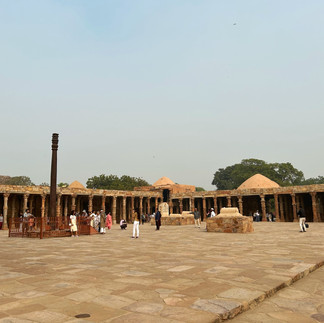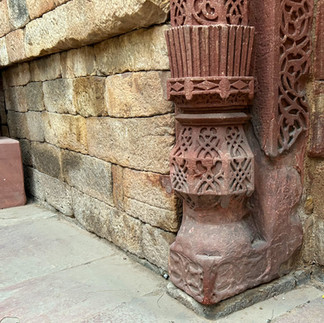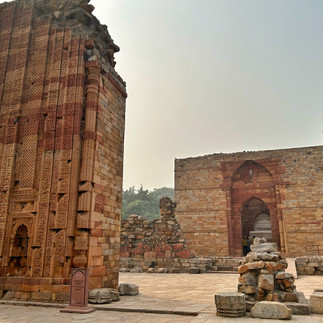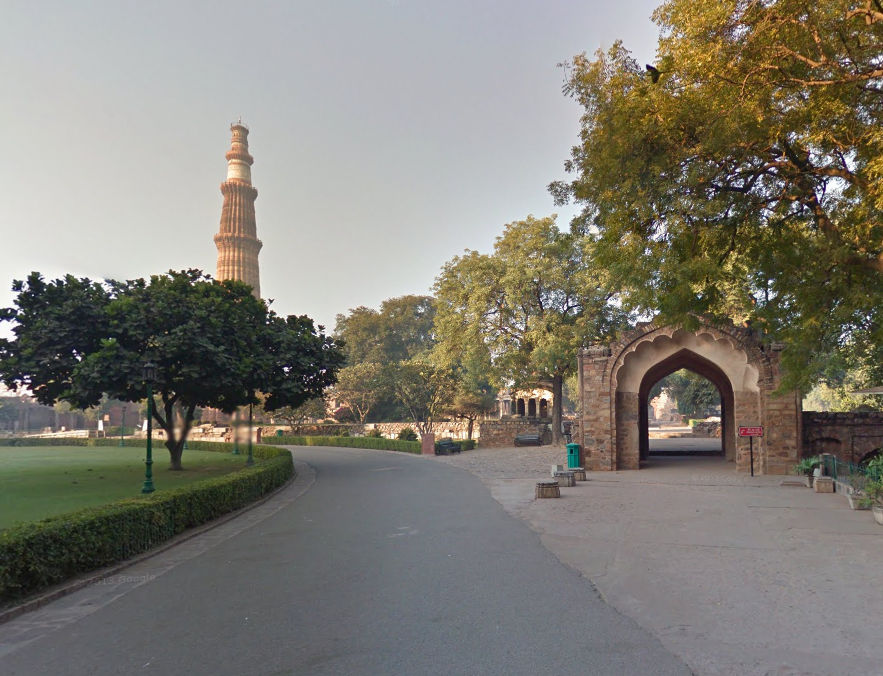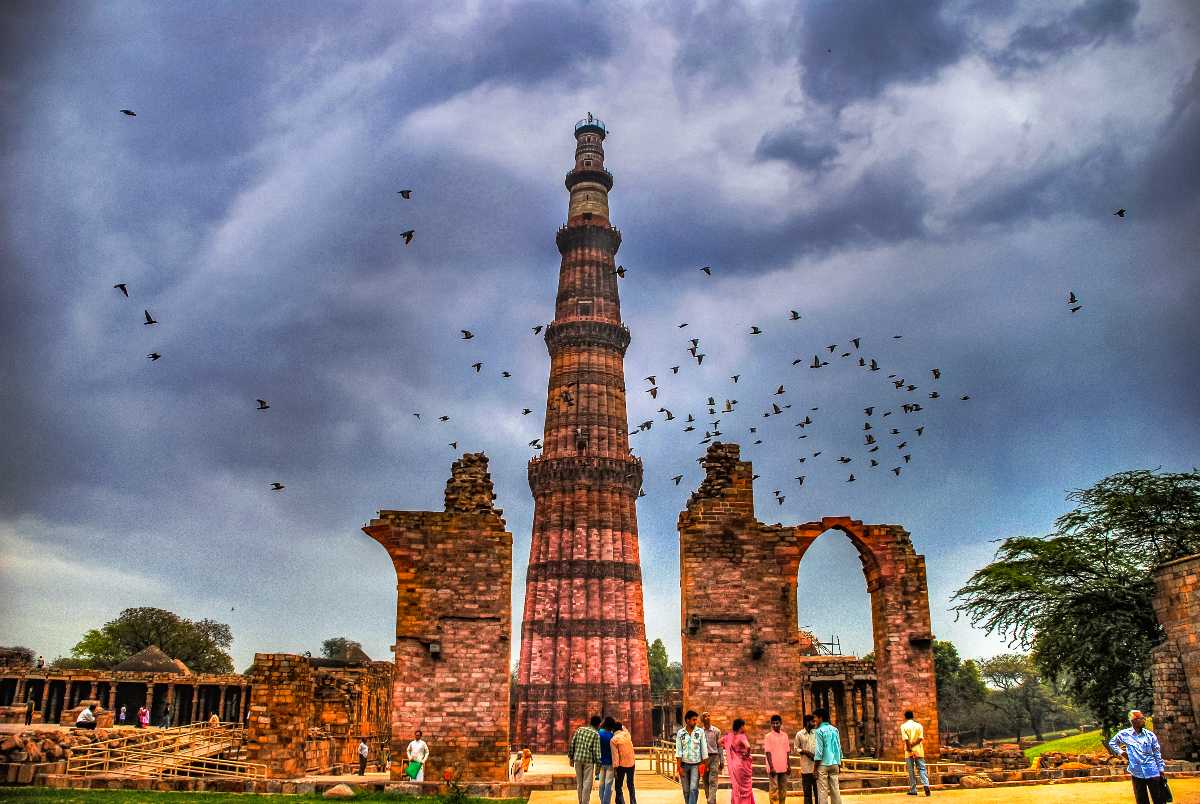

Qutub Minar: A Closer Look Inside
What’s Inside the Qutub Minar?
The Qutub Minar itself is a five-story-tall tapering tower. Inside, there is a narrow, spiral staircase of 379 steps winding all the way to the top with an opening at each storey.
Some architectural features stand out, like bracings to connect the shaft with the outer shell and brackets at the bottom of the staircase to provide support.
Can You Go Inside the Minar Itself?
No— visitors are not allowed to go inside or climb up the Qutub Minar. This restriction has been in place since 1981, following a tragic incident where a stampede inside the tower led to the deaths of 45 schoolchildren. The panic was triggered during a power outage while a large group was inside the narrow staircase, which has no ventilation or emergency exits.
Since then, for safety and preservation reasons, the interior of the Minar has been permanently closed to the public. But don’t worry— while you can’t climb the tower, you can freely explore the monuments in the "Complex".
Qutub Minar vs Qutub Complex — What’s the Difference?
Many people use “Qutub Minar” and “Qutub Complex” interchangeably but they’re not the same thing.
Qutub Minar is the iconic 73-meter tower built in the early 13th century by Qutb-ud-din Aibak and later completed by his successors. It’s the tallest brick minaret in the world and the centerpiece of the site.
The Qutub Complex, however, refers to the entire archaeological site that surrounds the minaret. It includes a collection of historically significant structures and ruins from the Delhi Sultanate period— some even predating the tower itself.
Key Structures In The Complex
Most visitors presume that the Minar is the only thing to see inside the Qutub Complex. Actually, there are more than 7 monuments and relics.
Alai Minar— Alauddin Khilji's unfinished minaret
Iltutmish's Extension andTomb— The legacy of Shams ud-Din Iltutmish, the third Mamluk king
Alauddin Khilji's Tomb &Madrasa— The legacy of Alauddin Khilji, a powerful 13th-century ruler
Iron Pillar— An iron column that has resisted rust for more than 1600 years
Quwwat-ul Islam Mosque—Delhi's first mosque made with the ruins of Hindu temples
Alai Darwaza— An elaborate gateway to the mosque compound added by Khilji
Tomb of Imam Zamin - A lesser-known gem from the Mughal period
Smith's Cupola - A colonial-era replacement dome once atop the Minar
How To Explore The Complex
The wealth of monuments inside the Qutub Complex can leave visitors feeling a bit overwhelmed. It's helpful to plan your exploration route in advance.
For the best visiting experience, consider how deeply you want to dive into the history and how much time you have. A full exploration can take up to 3 hours, but shorter visits are just as rewarding— and there’s always something new to discover on every return trip.
Here are some suggested walking routes:
In Depth | 120 minutes
Allows time to appreciate architectural details and take photographs.
What you see (in order):
Alai Minar
Iltutmish's Extension and Tomb
Alauddin Khilji's Tomb & Madrasa
Iron Pillar
Quwwat-ul Islam Mosque
Qutub Minar
Alai Darwaza
Tomb of Imam Zamin
Smith's Cupola

What you skip
Mughal Garden & Mosque (closed for access)
Step pyramid (closed for access)
Spiral pyramid (accessible through Mehrauli Archaeological Park)
Classic Trail | 60 minutes
Offers a well-rounded exploration of the complex’s history without feeling rushed.
What you see (in order):
Alai Minar
Quwwat-ul Islam Mosque
Iron Pillar
Qutub Minar
Alai Darwaza
Smith's Cupola

What you skip (in addition to the 120 min route) -
Iltutmish's Extension and Tomb
Alauddin Khilji's Tomb & Madrasa
Tomb of Imam Zamin
Quick Glimpse | 30 minutes
Best for visitors in a hurry but keen to witness the grandeur of the complex.
What you see (in order):
Quwwat-ul Islam Mosque
Iron Pillar
Qutub Minar

What you skip (in addition to the 60-minute route) -
Alai Minar
Alai Darwaza
Smith's Cupola
No matter how much time you spend here, the Qutub Complex has a way of leaving you in awe. Don’t forget to look beyond the famous minaret — happy exploring!
Visiting Qutub Minar? Check these out:









